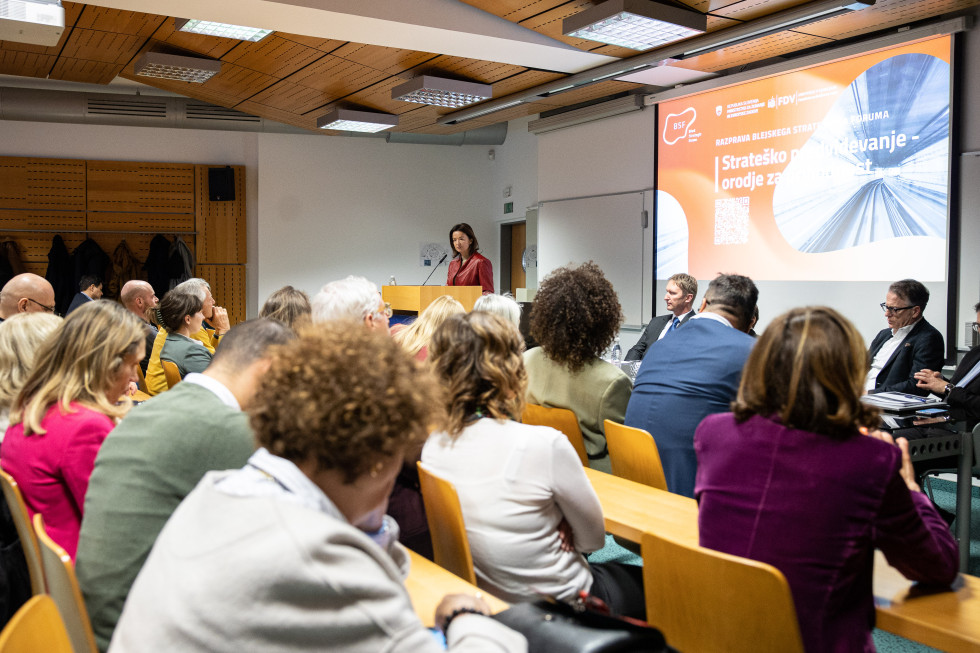BSF discussion and presentation of strategic foresight document

Minister Tanja Fajon | Author Ministrstvo za zunanje in evropske zadeve
The event was opened by the Minister of Foreign and European Affairs, Tanja Fajon: “I believe that strategic foresight is becoming increasingly important. The complexity of today’s world requires a different way of thinking and a strategic approach to the future.” She underlined that such approaches and discussions about the future help with multi-level planning and increase preparedness, thereby strengthening social responsibility.
According to the Slovenian Foreign Minister, the most important part of the document is the recommendations for Slovenian diplomacy for each scenario, which are not only directly applicable, but also encourage diplomats to think creatively and deeply. Slovenia's new foreign policy strategy, adopted by the Government in December last year, already introduces strategic foresight as one of its innovative approaches. “This is why the Ministry is determined to continue with the process of strategic foresight. I also hope that today's event, in addition to presenting our project, will contribute to raising awareness of the benefits of this approach in different segments of Slovenian society," concluded Minister Fajon.
Later on, the document Niches and excellence in Slovenian diplomacy 2030/2040 was presented in detail by Ambassador Sabina Stadler, Head of the Department for Strategic Studies and Analyses at the Ministry of Foreign and European Affairs. This was followed by a panel discussion entitled Strategic Foresight – A Tool for the Future, in which Professor Dr Iztok Prezelj, Dean of the Faculty of Social Sciences, and Blaž Golob, Director of the GFS Institute, also took part. The discussion was moderated by Assistant Professor Dr Matjaž Nahtigal, Chair of International Relations at the Faculty of Social Sciences. The panellists agreed that the introduction of the strategic foresight tool within the Ministry of Foreign and European Affairs was a step in the right direction, opening up new horizons for diplomats and decision-makers alike, and that its use should be extended to other state institutions.

